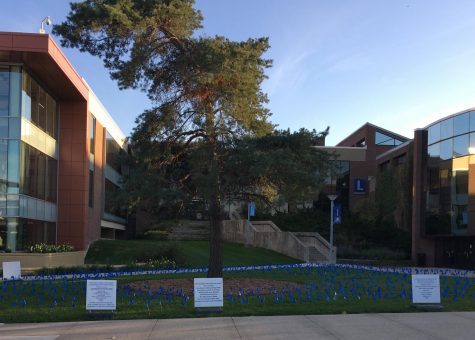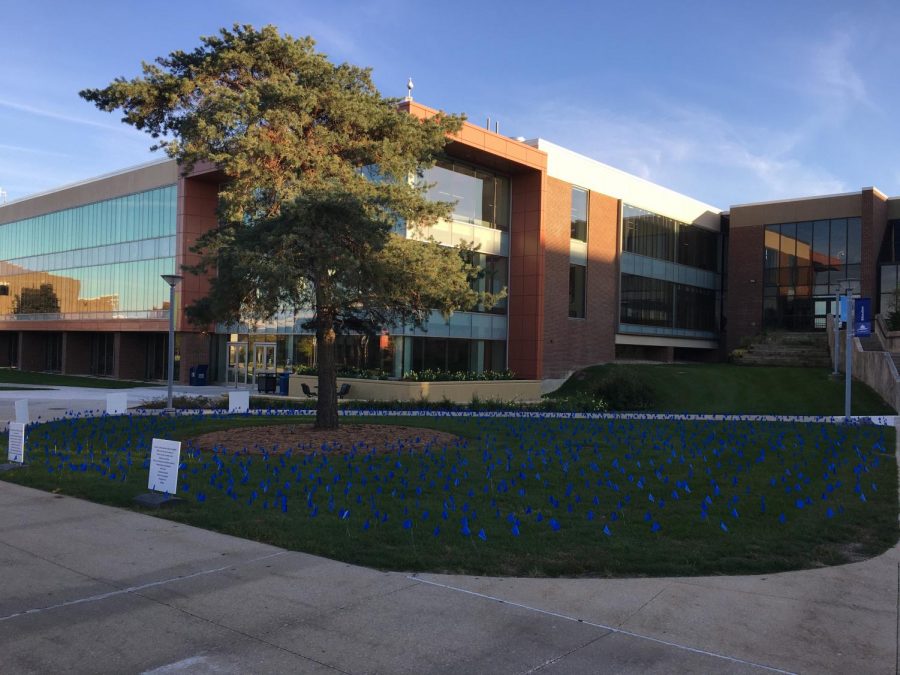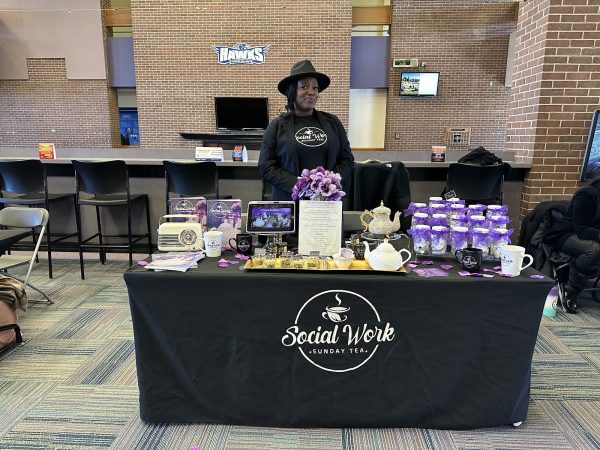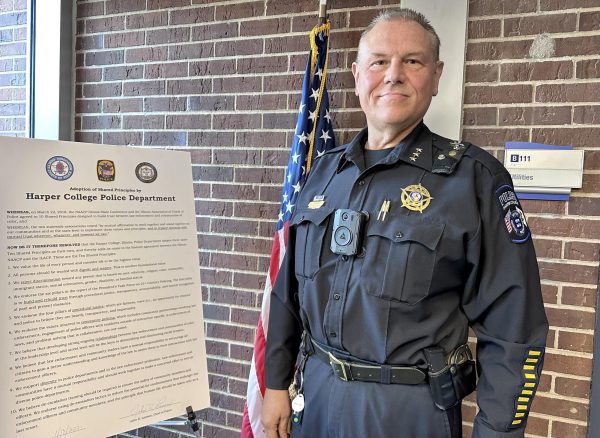National Collegiate Alcohol Awareness week at Harper aimed to decrease alcohol related deaths
During the last week of October 1,825 blue flags surrounded by white signs discussing National Collegiate Alcohol Awareness Week in the middle of the campus quad.
Each of those flags represented college students between the ages of 18 and 24 who died from alcohol-related, unintentional injuries.
The display was held October 20 to 26, to highlight National Collegiate Alcohol Awareness Week which aims to prevent alcohol-related deaths.
According to collegedrinkingprevention.gov, around 696,000 students between the ages of 18 and 24 are assaulted by another student who has been drinking. Also, 97,000 students between the ages of 18 and 24 report experiencing alcohol-related sexual assault or date rape.
Roughly 20 percent of college students meet the criteria for Alcohol Use Disorder, a disease characterized by uncontrollable drinking and about 1 in 4 college students report academic consequences from drinking, including missing class, falling behind in class, doing poorly on exams or papers and receiving lower grades overall.
Some students decide not to drink at all. However many of those students believe they are alone in making that choice.
According to the National College Health Assessment, around 21.2 percent of college students chose not to drink at all yet perceive that only 4.4 percent of their peers choose to abstain.
Beth Ripperger, Harper Wellness Manager, believes it’s important for students to know that their brains are not fully developed until they reach age 25.
“In turn, the prefrontal cortex, which helps control judgement, decision making and short-term memory can be negatively impacted by binge drinking and high-risk alcohol consumption,” Ripperger explained. “Drinking during this critical brain development period can have life-long impacts on brain function, especially as it relates to memory, motor skills and coordination.”
For students who are struggling with alcohol abuse, Ripperger can provide information and resources about alcohol. Students are encouraged to arrange a one-on-one consultation with her. During the meeting, students will get the chance to discuss their current issues with alcohol or other drugs.
If Rippenger finds it appropriate, she will work with the student using the Brief Alcohol Screening and Intervention of College Students (BASICS) intervention.

BASICS is for college students 18 to 24 years old who struggle with alcohol and have experienced or are at-risk for alcohol-related problems such as poor class attendance, missed assignments, accidents and violence.
“I can serve as a point person for students, and if needed, I can help them navigate other resources within the area,” Ripperger said.
Harper Wellness website can also be a good resource for students. To locate these resources, students can access this page: https://www.harpercollege.edu/wellness/resources/index.php.
Once students or employees navigate to the resources page they can simply click on the “Alcohol and Other Drugs” resource tab to access multiple resources.
For family and friends of students who struggle with alcohol abuse, Ripperger advised them to discuss their concerns with the individual and to talk openly and honestly about why they are concerned.
“I think a lot of times people don’t know what to say and tend to brush it under the rug and hope it goes away,” Ripperger explained. “When in reality, you don’t have to have the perfect words but just to let the other person know that you care and you want to see them succeed.”
She also wants loved ones to know that it’s not their fault if a person does not want to change.
“Getting a person to resources or access to a professional is usually the first step and it’s not your job to make the person change,” Ripperger shared.
She also offered four tips for family and friends of students who struggle with alcohol.
First, loved ones should talk with students about dangers of harmful and underage college drinking.
Dangers includes underage drinking, potential overdose, unintentional injuries, violence, unsafe sexual behavior, academic failure and other adverse consequences.
Second, family and friends should keep lines of communication open, while staying alert for possible alcohol-related problems. Students should make sure that they know the signs of alcohol overdose or an alcohol-related problem and how to help.
For students who question why they should get sober, Ripperger reminds students of how alcohol has the ability to negatively impact different aspects of our lives such as sleep, ability to concentrate in class and reaching fitness goals.
“There are many other positive effects of choosing not to drink or reducing consumption levels other than the ones listed here, but the important point is to minimize or eliminate drinking levels in order to help alleviate the likelihood of experiencing any negative consequences to drinking,” she continued.
Rippenger advises students struggling with an alcohol addiction to come forward.
“You’re not alone and it’s ok to ask for help,” Ripperger explained. “ I care, and I am happy to help assist students who may not know where to start.”











